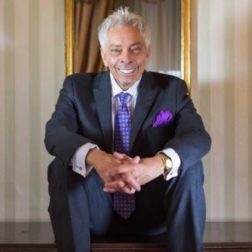
(By Mike McVay) While the counting of ballots continues, and the nation awaits the certification of the results on December 14th, many of us in media and many members of the audience, are ready to “take a break.” Election burnout, in what was possibly the most contentious election of our lives, was predicted. What to do about it is what has not yet been addressed. You cannot ignore an unsettled electorate, but you cannot continue to beat the same drum endlessly without expecting to see a decline in ratings.
What we have learned is that it has become popular for the mental health experts to recommend listening less to news/talk radio, watch less of the TV news channels, turn-off the news in-general, step away from social media and avoid electronic or printed daily news updates. This “ostrich” strategy (put your head in the sand and ignore everything) will probably work for some listeners. It doesn’t work for radio.
We have to deliver the news and talk about the election, but we don’t have to be a part of the echo chamber that is much of talk radio, and add to the burnout factor by ignoring all else. We don’t have to repeat the same messaging over-and-over again. We can be different from that and still be topically connected to the biggest stories of the day. We can deliver news without the alternative to election coverage being “life style” stories.
There are many more immediate things in listeners lives that have nothing to do with election results. The economy is a huge problem and keeps many of us awake at night. Unemployment, families that need food, a holiday around the corner that will be like no other, schooling during a pandemic and the negative impact on mental health that comes from being quarantined or socially distanced. These topics need not be politicized. When it’s all said and done … we people care about our tightest inner-circle. Our families and our friends. Refocus there and deliver to your audience the news that they care most about.
To the non-news stations, combat burnout by being the alternative. Start by acknowledging that research shows us that people who listen to anything other than a news/talk station, do not want to hear your non-news/talk station (meaning a Sports or Music station), talking about politics. That’s not why they’re listening to your station. Be true to your brand.
Discourage your talent, on your non-news station, from taking a side politically. There’s no reason to alienate half the audience. Realize that your talent’s opinions voiced on social media, on a TV show or when speaking in-public, represent your stations opinion as much as they represent theirs. The weight of our words are heavier than ever and create ripples that are greater than ever.
Mike McVay is President of McVay Media and can be reached at [email protected]









“Be true to your brand” is a an important thought.
The one radio has ignored from the start of this new media explosion though (circa: 2005), is “doing frequent upgrades to the mechanics of the brand.” We all receive constant updates to apps, programs, and device OS – all are meant to improve the user experience or fix a problem.
Radio seldom updates. (Is there anything successfully introduced, which matters to the audience, that’s more new than the sports talk format?) When’s the last time the approach to commercials has been revamped? Major updates are needed in multiple product layers.